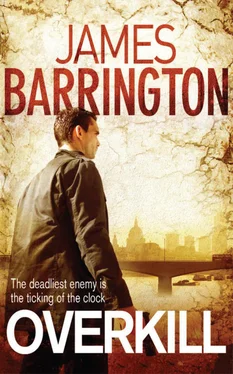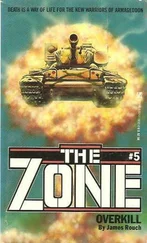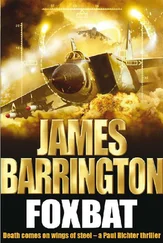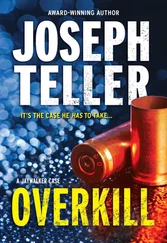Richter was no stranger to violence. Within days of his first meeting with Simpson, and even before he had been recruited into FOE, he had been sent deep into France with a cover story so thin that it was virtually transparent, and he had been forced to kill just to stay alive. But never before had Richter killed with his bare hands, one-to-one.
The men in the Jaguar were dead, of that he was certain. He had heard, and felt, their skulls shatter under the blows of the rock, and this time there had been no termination order, no official approval. He didn’t even know who they were. They had died because they had tried to kill him, nothing more – not much of an epitaph and possibly, Richter realized, not even much of a justification. He knew he was going to have to be careful.
Richter put the guns on the seat beside him, then had a look at the car. It was a mess, at best. The windscreen was laminated, so there was little he could do about the bullet hole, but he knocked out the shattered rear screen, keeping the glass in the car, as he didn’t want to advertise that he’d stopped there, for any reason. The driver’s door window had shattered as well, and the bits were all over the floor, which was the best place for them.
He looked at the offside of the car and found a bullet hole just below the top of the front wing, and the exit hole near the centre of the bonnet. Richter smeared some mud over the holes – a barely adequate disguise – then threw more at the side of the car. The bullet which had taken out the side window had left the car through the roof, just above the passenger door, and Richter guessed that the third shot had gone above, or perhaps in front of, the windscreen. Under the circumstances, he thought, it had been bloody good shooting.
The left side of the car was very badly bent and twisted, front and rear wings buckled beyond repair. All the lights that side had gone; headlight, sidelights and indicators. The bonnet was jammed shut, so Richter couldn’t tell whether the bullet had done any damage in the engine compartment, but as everything seemed to be working he wasn’t bothered.
After about twenty minutes Richter was satisfied that he had done all he could to hide the fact that he’d been involved in a running battle. He studied the map for a few minutes, and worked out a route that would get him back to Hammersmith without going anywhere near any major built-up areas until he reached the outskirts of London.
Before he set off, Richter put on the shoulder holster with the Mauser, and put the Colt into the side pocket of his jacket. The magazines and loose rounds went into his pockets. Wearing his gloves again, Richter took the three spent shell cases and dropped them down a rabbit hole near the car. He set fire to the blood-smeared road map and then trod the ashes into the ground. He tossed his gloves out of the window at fifteen-minute intervals as he drove.
An hour and twenty minutes later Richter double-parked the Granada outside his flat, went up and wrapped the pistols, holster and ammunition in a couple of old towels, and put them in a small suitcase. Then he drove to Euston Station and checked the suitcase into the left-luggage office. A man, in Richter’s opinion, couldn’t have too many guns, especially ones that couldn’t be traced to him.
The duty Pool Controller was almost incoherent when Richter delivered the remains of the Granada. He didn’t believe it. The duty driver he summoned as a witness didn’t believe it either. ‘What the bloody hell did you do to it? Look at the state it’s in.’
‘There was,’ said Richter, ‘a certain amount of unpleasantness.’
‘What am I going to tell the Transport Officer?’
Richter was getting tired and irritable. ‘I don’t give a toss what you tell him. If he’s not happy, tell him to see me.’
Richter went into his office, picked up the direct line to Simpson and waited. After ten seconds he put it down again and looked at his watch. It was after eight, and it was being unduly optimistic to suppose Simpson would still be around at that time in the evening.
Richter shrugged, locked his office door and walked back down the stairs. He called in at the Duty Room and told the Duty Operations Officer what had happened. Or rather, what Richter thought he ought to know about it. The Ops Officer said he would tell Simpson when he got there in the morning.
Wednesday
Hammersmith, London
Simpson looked very unhappy when Richter appeared in his office at nine the following morning, for two reasons. First, Richter was late and hadn’t answered his flat phone, and second, the Transport Officer had been draining all over him since just after eight. ‘Sorry,’ Richter said.
‘Stow it, Richter. Sarcasm I can do without. What happened?’
Richter told him, omitting the fact that he had removed the weapons and ammunition from the car and that he had contributed to the driver’s headache and caused the passenger’s.
‘Who were they?’ Simpson asked.
‘Pros,’ Richter replied. ‘Neither had any ID, and it looked like a very tight set-up. The reason I didn’t hang around was that I was worried about a second team in another motor.’
‘Did you see a second car?’
‘Not that I could positively identify, no, but they had a radio in the Jaguar that definitely wasn’t there to pick up the racing results on Radio Four. I took off from the crash when I heard a car coming, so that could have been it. I wasn’t prepared to take a chance.’ That didn’t sound too bad. It could have happened.
‘Who do you think they were? With reasons.’
‘I think the Russian Embassy is short two Cultural Attachés,’ Richter said. ‘Cultural Attachés who just happened to be trained assassins, who were following me in a stolen car.’
Simpson digested this in silence for a few moments, then spoke again. ‘One thing I don’t buy – why did they try a mobile hit?’
‘I don’t think they did – it was simply Russian mentality. I drove up to Brampton on the A1 – a hell of a journey, with long queues at three sets of roadworks and a major accident. So I had decided to come back a different route. I was going to cut across country and pick up the A10. But because I’d driven up on the A1, they probably presumed that I would drive back on the A1, queues notwithstanding. After all, queuing is pretty much endemic in Russia.
‘I think that somewhere on the A1 between Brampton and London,’ Richter continued, ‘there was a man with a Mannlicher or a Mauser, waiting for me to drive into the viewfinder of his telescopic sight. No professional assassin would ever try a hit from a moving car against a target also in a moving car – it’s virtually impossible to get a clean kill. He would always go for a static hit. So the mobile would have been the last-resort back-up, and they only used it because I turned left instead of right out of Brampton’s main gates.’
Simpson nodded. ‘What weapons were they carrying?’
‘The guy in the back seat had a Colt. The driver I don’t know about.’
‘Why not something heavier?’
‘Probably just prudence. Diplomatic passports or not, the plods take a dim view of foreign hoods wandering about the Home Counties carrying assault rifles or sub-machineguns. Pistols you can hide.’
Simpson nodded, apparently satisfied. He stood up and walked over to his favourite window and looked out. He fondled his cacti for a minute or so, then turned round. ‘OK, assuming for the moment that it was a Russian operation, why?’
‘I think Newman’s death must be tied in with the Blackbird flight,’ Richter said. ‘Follow the sequence. I go to Moscow, I investigate the death of an Embassy official, and a Russian hood tries to take me out before I even leave Sheremetievo. I come back here and immediately visit JARIC, where any pictures from the Blackbird over-flight would be bound to end up if we had anything to do with it. Then someone else tries to take me out. I gave up believing in coincidence when I stopped believing in Father Christmas. Those events are linked, and the sum added up, from the Russian point of view, to the elimination of Richter.
Читать дальше












